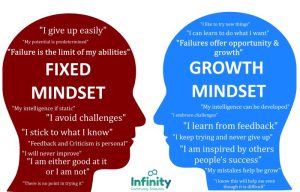Group Therapy for Anxiety Finding Relief

Group therapy for anxiety offers a unique approach to managing this prevalent mental health concern. Unlike individual therapy, group settings provide a supportive environment where individuals can share experiences, learn coping mechanisms, and build connections with others facing similar challenges. This collaborative approach leverages the power of shared understanding and mutual support to foster healing and personal growth. The various formats of group therapy, such as cognitive-behavioral therapy (CBT) groups and support groups, cater to different needs and preferences, allowing individuals to find the most suitable path toward recovery.
This exploration delves into the benefits and challenges of group therapy for anxiety, providing a comprehensive guide for those considering this therapeutic modality. We’ll examine the process of finding a suitable group, navigating the group therapy experience, and utilizing various stress and anxiety management techniques within the group setting. Furthermore, we’ll address the intersection of anxiety with other mental health conditions, such as depression, and explore resources for comprehensive support.
Workplace Mental Health and Group Therapy: Group Therapy For Anxiety
Anxiety significantly impacts the workplace. Untreated anxiety can lead to decreased productivity, increased absenteeism, and reduced job satisfaction, affecting both the individual employee and the overall company performance. This section explores the role of group therapy in managing workplace anxiety and fostering a supportive work environment.
Group therapy offers a unique and effective approach to managing anxiety in the workplace. The shared experience within a group setting allows individuals to feel less isolated, learn coping mechanisms from others, and receive immediate feedback and support. A structured therapeutic environment provides tools and techniques for managing anxiety triggers specific to the workplace, such as deadlines, presentations, or difficult colleagues.
This can lead to improved self-esteem, enhanced communication skills, and a greater sense of control over anxiety-provoking situations.
Strategies for Creating a Supportive Work Environment
Cultivating a supportive and understanding work environment is crucial for employees struggling with anxiety. This involves implementing policies and practices that prioritize mental well-being alongside physical health. Open communication and a culture of empathy are essential. Managers should be trained to recognize the signs of anxiety and provide appropriate support, without judgment. Flexible work arrangements, reasonable workloads, and access to mental health resources can significantly alleviate stress and improve employee well-being.
Regular check-ins and opportunities for employees to voice their concerns contribute to a safe and supportive atmosphere.
Resources and Support for Employees
Many resources and support systems are available to employees experiencing anxiety at work. Employee Assistance Programs (EAPs) often provide confidential counseling services, including therapy options. Mental health apps and online resources offer accessible tools and information for self-management. Companies may offer workshops or training sessions focused on stress management and anxiety reduction techniques. Access to mental health professionals, such as therapists or psychiatrists, can be facilitated through insurance plans or company-sponsored programs.
Furthermore, promoting a culture of open communication, where employees feel comfortable discussing their mental health concerns without fear of stigma or reprisal, is paramount. This open environment fosters a sense of belonging and empowers employees to seek help when needed.
Overcoming Addictions and Group Therapy

Anxiety and addiction frequently coexist, creating a complex challenge for individuals seeking recovery. The interconnectedness of these conditions stems from shared underlying mechanisms, such as dysregulation of the brain’s reward system and coping mechanisms. Group therapy offers a powerful approach to address both issues simultaneously, providing a supportive environment for individuals to explore their anxieties and addictive behaviors.The synergistic relationship between anxiety and addiction is significant.
Anxiety can trigger addictive behaviors as a means of self-medication, while addiction can exacerbate existing anxiety symptoms through withdrawal, guilt, and social consequences. This cycle often reinforces both conditions, making recovery more difficult. Group therapy provides a structured setting to address these intertwined issues.
Common Challenges Faced by Individuals with Anxiety and Addiction
Individuals struggling with both anxiety and addiction face unique hurdles in their recovery journey. These challenges often include intense emotional distress, difficulty managing cravings, social isolation, and the stigma associated with both conditions. The interplay between anxiety and addiction can make it harder to engage in treatment, adhere to recovery plans, and maintain long-term sobriety. For example, a person with social anxiety might avoid support groups due to fear of judgment, hindering their progress.
Simultaneously, their addiction could worsen their anxiety, creating a vicious cycle.
The Role of Support Groups in Addiction Recovery
Support groups, such as Alcoholics Anonymous (AA) or Narcotics Anonymous (NA), play a crucial role in addiction recovery by fostering a sense of community and shared experience. These groups provide a safe space for individuals to share their struggles, receive peer support, and learn coping mechanisms from others who have successfully navigated similar challenges. The shared experience of addiction and recovery can reduce feelings of isolation and shame, encouraging continued engagement in treatment.
The structured format of many support groups, often involving a 12-step program, provides a framework for personal growth and accountability.
Addiction Treatment Programs and Resources
Several evidence-based treatment programs effectively address addiction and co-occurring disorders. These programs often combine various therapeutic approaches, such as cognitive behavioral therapy (CBT), motivational interviewing, and medication-assisted treatment (MAT). CBT helps individuals identify and modify negative thought patterns and behaviors contributing to addiction. Motivational interviewing assists in enhancing intrinsic motivation for change. MAT utilizes medications to manage withdrawal symptoms and reduce cravings.
Resources such as the Substance Abuse and Mental Health Services Administration (SAMHSA) National Helpline (1-800-662-HELP) provide confidential information and referrals to treatment facilities and support groups. The National Institute on Drug Abuse (NIDA) website offers extensive information on various aspects of addiction and recovery.
Personal Growth and Self-Care Strategies

Group therapy provides a unique environment for personal growth and self-discovery. The shared experience of anxiety, coupled with the support and guidance of a therapist and peer group, fosters self-awareness and encourages exploration of personal patterns and coping mechanisms. This process can lead to significant shifts in self-perception and the development of healthier relationships with oneself and others.Group therapy facilitates personal growth by providing a safe space for vulnerability and honest self-reflection.
Participants learn from each other’s experiences, gaining new perspectives and strategies for managing anxiety. The feedback and support received from the group can be incredibly powerful, helping individuals to identify and challenge negative thought patterns and behaviors. This collaborative approach allows for a deeper understanding of one’s own emotional landscape and the development of more adaptive coping mechanisms.
Self-Care Practices Complementing Group Therapy
Engaging in regular self-care practices significantly enhances the benefits of group therapy for anxiety management. These practices provide individuals with tools to manage their anxiety symptoms outside of the therapy sessions, reinforcing the progress made in the group setting. A holistic approach to self-care addresses physical, emotional, and mental well-being.
Examples of beneficial self-care practices include:
- Mindfulness and meditation: These techniques help to cultivate present moment awareness and reduce rumination, a common symptom of anxiety.
- Regular exercise: Physical activity releases endorphins, which have mood-boosting effects and can help to reduce stress and anxiety levels. Even a short walk can make a difference.
- Healthy diet: Nourishing your body with wholesome foods provides the energy and nutrients needed to cope with stress and anxiety. Limiting caffeine and processed foods can also be beneficial.
- Sufficient sleep: Adequate sleep is crucial for both physical and mental health. Aim for 7-9 hours of quality sleep per night.
- Spending time in nature: Connecting with nature has been shown to reduce stress and improve mood. Even a brief walk in a park can be restorative.
- Engaging in hobbies: Activities you enjoy provide a sense of accomplishment and relaxation, helping to counter the effects of anxiety.
Setting Realistic Goals and Celebrating Achievements
Setting achievable goals is essential for sustained progress in managing anxiety and fostering personal growth. These goals should be specific, measurable, attainable, relevant, and time-bound (SMART). Starting with small, manageable goals builds confidence and momentum, preventing feelings of overwhelm.For example, instead of aiming to eliminate anxiety entirely, a realistic goal might be to reduce the frequency or intensity of panic attacks by practicing relaxation techniques learned in therapy.
Celebrating even small achievements reinforces positive behavior and encourages continued effort. This positive reinforcement helps maintain motivation and promotes a sense of self-efficacy. A simple journal entry acknowledging progress or sharing a success with a supportive friend or family member can be highly effective.
A Personalized Self-Care Plan, Group therapy for anxiety
Creating a personalized self-care plan involves identifying specific practices that resonate with individual needs and preferences. The plan should incorporate a mix of relaxation techniques and healthy lifestyle choices. It’s important to be flexible and adapt the plan as needed, based on individual experiences and changing circumstances.
A sample self-care plan might include: 30 minutes of yoga or meditation three times a week, a 30-minute walk daily, maintaining a balanced diet with plenty of fruits and vegetables, ensuring 7-8 hours of sleep nightly, and dedicating 1 hour each week to a favorite hobby.
The plan should be regularly reviewed and adjusted to ensure it remains effective and enjoyable. Remember, self-care is not a luxury; it is a necessity for managing anxiety and promoting overall well-being.
Ultimately, group therapy for anxiety offers a powerful pathway to healing and personal growth. By fostering a supportive community and equipping individuals with effective coping strategies, this therapeutic approach empowers individuals to manage their anxiety, build resilience, and lead fulfilling lives. The journey may present challenges, but the shared experience and collective strength found within a supportive group can make all the difference in achieving lasting relief and well-being.
Remember that seeking professional guidance is crucial in determining the best course of treatment for your individual needs.
Question & Answer Hub
What if I’m uncomfortable sharing in a group setting?
Many therapists understand this concern. They create a safe and supportive environment, and you’re not obligated to share anything you’re not comfortable with. You can start by listening and gradually participate more as you feel ready.
How long does group therapy typically last?
The duration varies depending on individual needs and the group’s structure. Some groups are short-term, focused on specific skills, while others are ongoing for longer-term support.
Is group therapy covered by insurance?
Coverage depends on your specific insurance plan. Contact your provider to verify benefits and coverage for group therapy sessions.
Can I join a group if I’m taking medication for anxiety?
Yes, many individuals in group therapy are also taking medication. It’s important to inform your therapist about any medications you are taking.






